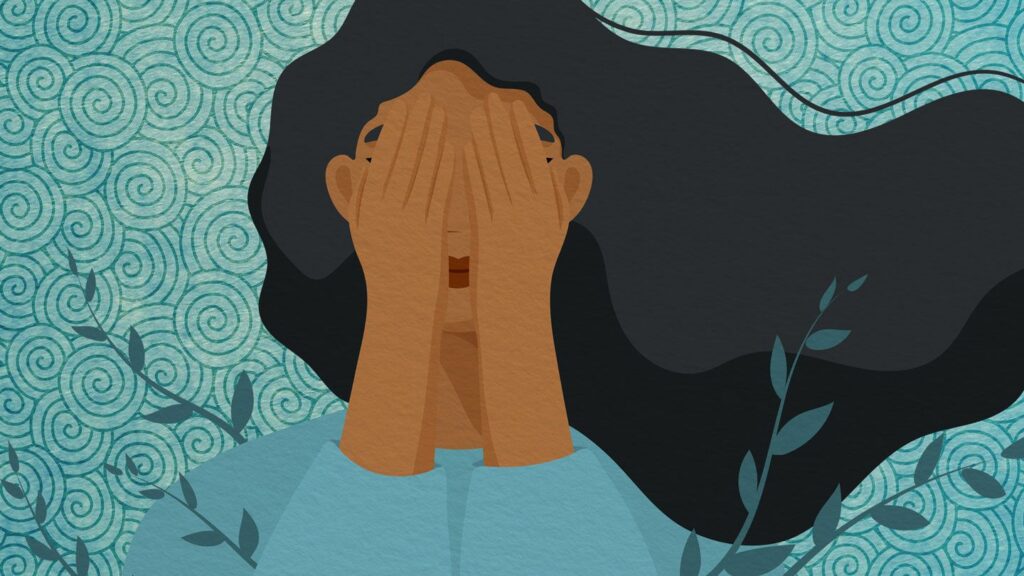Depression is a mental illness that can affect anyone. However, it is more common in women than men. The symptoms of depression in women are different from those in men, and there are many causes for their depression as well.
This blog post will cover the different symptoms of depression in women, possible causes of depression in women, ways to treat and cope with depression as a woman in detail.
Contents
- 1 What Is Depression In Women?
- 2 What are the Symptoms of Depression in Women?
- 3 What are the Causes of Depression in Women?
- 4 What Are The Types of Depression Prevalent in Women?
- 5 Psychological Therapists Discuss Treatment Options for Depression in Women
- 6 Psychological Therapies For Depression In Women
- 7 Coping Strategies For Depression In Women For
- 8 Conclusion
What Is Depression In Women?
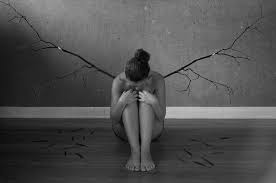
Depression in women is a mental health disorder. It means that it can be treated and controlled if diagnosed properly. Depression is the most common mood disorder among adults.
The depressive disorder affects both men and women. But research shows that about twice as many women have been found to experience depression at some time in their lives.
The symptoms of depression are different for everyone, but they can include:
- Feeling sad or down most of the time
- Losing interest in things you used to enjoy
- Having problems concentrating
- Remembering details, or making decisions
- Feeling anxious or restless
- Eating more or less than usual
- Sleeping too much or not enough
- Feeling tired or having little energy
- Thinking about death or suicide
- Attempting to commit suicide
What are the Symptoms of Depression in Women?
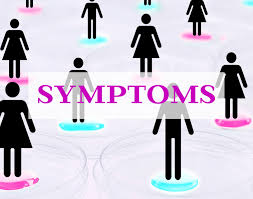
The symptoms associated with depression vary from person to person, but there is a significant overlap between these symptoms:
Loss of pleasure
The symptoms of depression include lack of interest or loss of pleasure in daily activities. Like eating or taking part in social events that were once considered enjoyable to the woman. This symptom is also known as anhedonia; it may be present in almost all types of depression.
Feelings of guilt, worthlessness, and helplessness
These are common negative thoughts that might plague a woman with depression. She may feel like she is not good enough for anything. Or that she will never be able to improve her situation. This can lead to a sense of hopelessness about the future.
Loss of energy, fatigue
When people are depressed, they lose interest in even the activities that would normally be considered enjoyable. This lack of motivation can lead to decreased activity levels and loss of energy for physical tasks or exercise. It is common for a woman with depression to start sleeping more than usual. Since she may not have much energy to do anything else.
Changes in appetite and weight changes
Depression can lead to either increased or decreased food intake. But most women experience a loss of interest in their usual favorite foods that they used to enjoy. Concentration problems are another symptom associated with severe depression. This may make it difficult for her to prepare healthy meals at home or to eat at social events.
Severe anxiety and restlessness
It is not unusual for a woman with depression to experience severe physical symptoms like fatigue. But she may also feel extremely jittery or nervous when it seems there’s no reason for her feelings of unease. The stress of these emotions can take an even greater toll on her body and make it difficult to concentrate or relax.
Insomnia or hypersomnia
Depression can cause extreme changes in sleeping habits, with some women losing their appetite for sleep while others become insomniac. In either case, the lack of quality slumber will only aggravate the woman’s depressive symptoms.
Poor concentration and decision-making skills
A woman with depression may find that her thinking becomes muddled and she has difficulty making decisions. This can add to her feelings of worthlessness and helplessness. She may also have trouble concentrating on tasks at work or school.
Thoughts of death or suicide
The most dangerous symptom a woman with depression can experience is thoughts of death or suicide. This may stem from the hopelessness she feels about her situation, combined with a lack of desire to live. Many women attempt suicide as an act of desperation when they feel there are no other options available to them.
What are the Causes of Depression in Women?
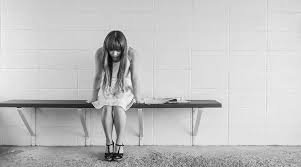
There are many different causes of depression in women. Some might be related to the woman’s biology, while others might be due to life stressors or emotional problems. It is important to identify the cause of depression so that appropriate treatment can be administered. Here is the list of possible causes (natural and imposed) that often result in depression in women:
Natural Causes
Hormonal Changes
Changes in the levels of hormones such as estrogen and progesterone during puberty, menstruation, pregnancy, menopause can also lead to depression. Hormonal changes may cause women to feel depressed or anxious at different times each month which is known as premenstrual dysphoric disorder (PMDD). It affects about five percent of all menstruating women.
Genetic Predisposition
There is a genetic component to depression. A woman’s chances of developing the disorder are higher if you have someone in your family who has it, especially women on your mother’s side. It may be that some predisposing genes make people more vulnerable to stress or negative emotions and less able to handle these feelings well.
Physical Health Problems
When a woman is struggling with a physical illness, it often becomes difficult for her to cope emotionally. She might feel that she is not able to do anything on her own and become helpless. The combination of emotional stress and physical pain can worsen the symptoms of depression in women.
Other Mental Health Disorders
As anxiety, eating disorders posttraumatic stress disorder can also lead to depression in women. These disorders can make it hard for a woman to cope with her feelings, which in turn might worsen the symptoms of depression.
Low Levels Of Neurotransmitters
Neurotransmitters are chemicals in the brain that regulate mood, thinking, and behavior. When there is a chemical imbalance of neurotransmitters, it can lead to symptoms associated with depression. Some studies have shown that people who experience depression may have lower levels of serotonin or norepinephrine than normal. These changes might be due to heredity or other reasons.
Imposed Causes
Poor Self-Image
When a woman is struggling with depression, she often has feelings of inadequacy and the fear that others will reject her socially or professionally. She might also feel unattractive to men as well as women, which makes it hard for her to have normal sexual relationships. Being seen by yourself in this state can lead to further isolation and loneliness.
Family Problems
In some cases, women may feel that they are not good enough as a parent. They might blame themselves for their parenting skills or think that they have failed to meet the needs of their children. As a result, there is a feeling of guilt and negative thought about oneself. Women experiencing this problem normally take much time in making decisions, and this can hamper their productivity.
Life Stressors
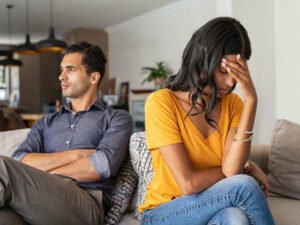
Such as job strain or relationship problems and major life events such as the birth of a child or illness in a family member can trigger depression in women. Such risk factors increase if you have many stressors and feel that they are beyond your control to manage them well.
Loss Of a Loved One
The loss of a significant relationship such as divorce or separation, death of someone close to you with whom you were very close. This can leave them feeling that life is meaningless and purposeless. Some women find it difficult to manage the tasks in their lives when they lose this important person from their life.
Substance And Alcohol Abuse
When women abuse alcohol or other substances like drugs, it can lead to depression. It has been found that about 60 percent of people who are addicted to alcohol also suffer from mental health disorders such as anxiety and depression; this is called a co-occurring disorder. When a woman stops using these substances after abusing them for so long, she might experience symptoms of withdrawal and feel down.
What Are The Types of Depression Prevalent in Women?
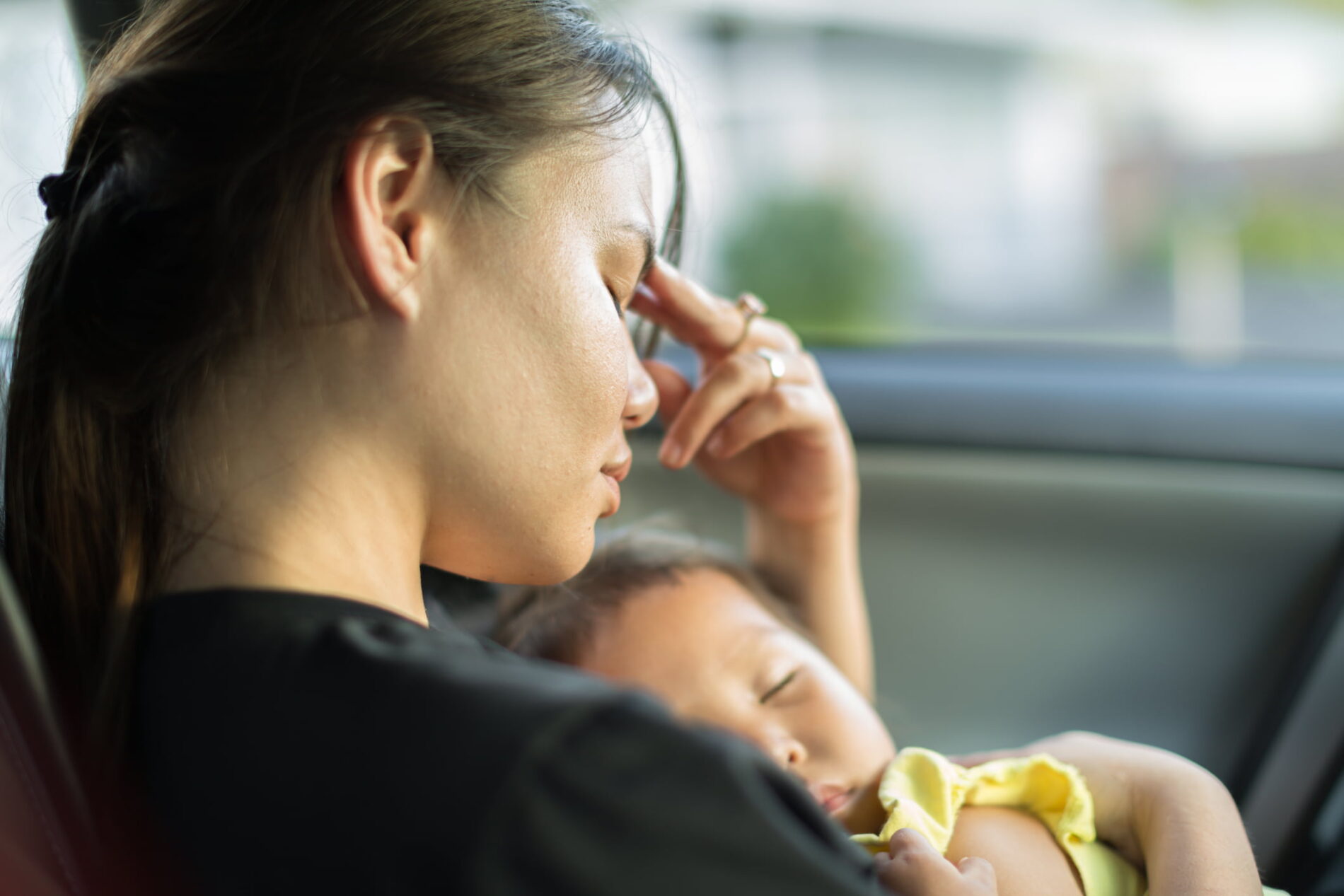
There are several types of depression that women may go through such as:
Postpartum Depression
This is a type of depression that is experienced by women after giving birth to a child. One in every five new mothers experience postpartum depression and it generally appears within three months following childbirth or even later than this period. This disorder affects the mother’s mental health, her ability to care for herself as well as the baby causing disruptions in family relationships at home.
Premenstrual Dysphoric Disorder (PMDD)
This type of depression is usually experienced by women with premenstrual syndrome and it affects one in every five to eight menstruating women. Symptoms of this disorder include feelings such as sadness, low self-esteem, anxiety, and changes in appetite causing the woman to feel tired out. The woman will also experience problems with concentration and mood swings that are difficult to manage.
Seasonal Affective Disorder (SAD)
People who have SAD may be affected by depression in different degrees when fall comes along. But it is not experienced all year round unlike other types of depression such as dysthymia, bipolar disorder, and major depression. Symptoms of SAD include low mood, feeling hopeless and helpless, overeating and sleeping too much, withdrawing from friends and activities you once enjoyed as well as having thoughts of death or suicide.
Double Depression
This is a type of depression that is experienced by women who have dysthymia (mild to moderate depression that lasts for a long period) and major depression. This type of depression is difficult to identify and can last for years. Symptoms include feeling hopeless, helplessness and worthless, low mood, changes in appetite which could lead to weight gain or loss, problems with sleeping, fatigue, and thoughts of death or suicide.
Psychological Therapists Discuss Treatment Options for Depression in Women

Therapists have differing opinions when it comes to diagnosing and treating depression in women. Some therapists may feel that postpartum depression, premenstrual dysphoric disorder, seasonal affective disorder, and double depression are all different forms of major depression.
They may also believe that these disorders should be treated using the same treatment strategies. While some therapists differentiate between each disorder and believe that they should be handled differently with different treatment options to suit the specific needs of women.
If you are suffering from prolonged or severe depressive episodes, it would be best to seek help from a mental health professional such as a psychologist, psychiatrist, clinical social worker, or counselor. These professionals can do diagnostic assessments to determine if you are suffering from depression and can recommend the best treatment option for you.
Psychological Therapies For Depression In Women
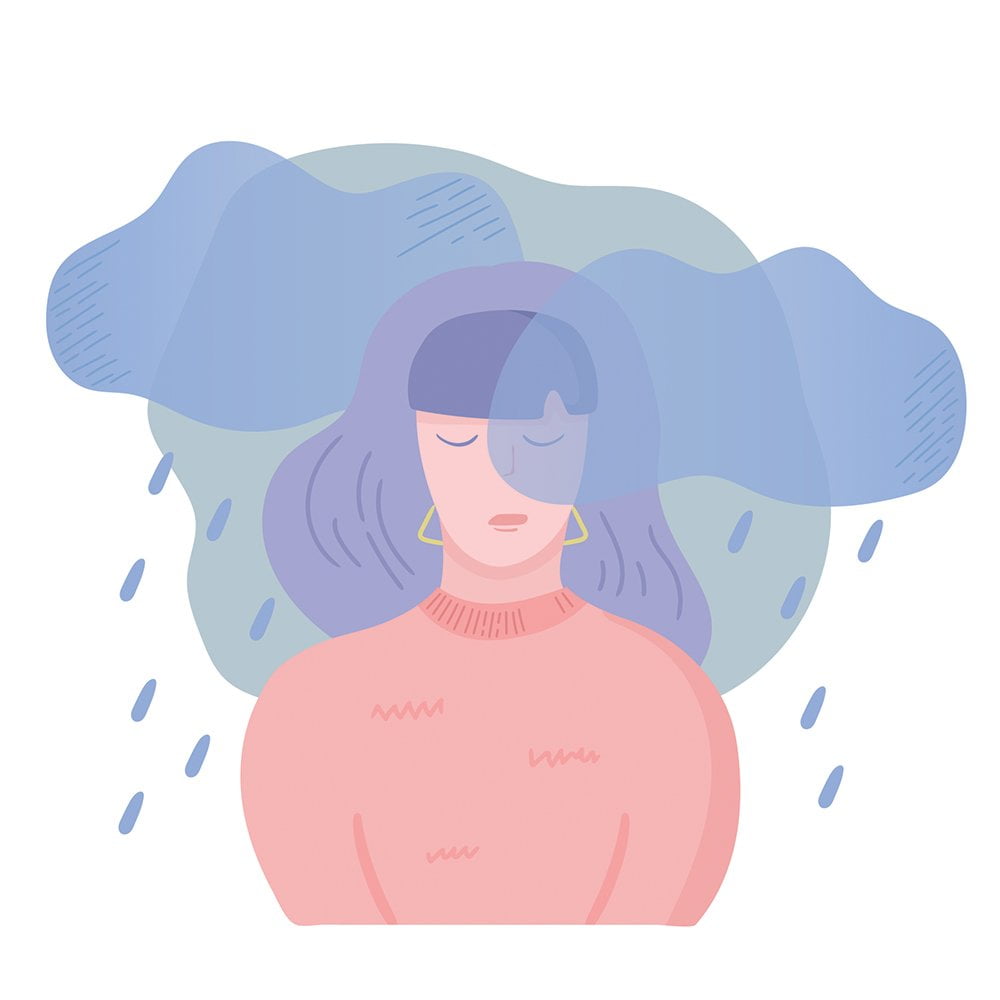
There are different types of psychological therapies that are effective in the treatment of depression in women.
Cognitive-Behavioral Therapy (CBT)
It is a type of psychological intervention that focuses on the present problem but also deals with how it has affected you in the past or will affect you in future situations. CBT can be done individually or within group settings that are focused on your specific needs.
Interpersonal Psychotherapy (IPT)
This type of therapy helps you understand and manage your relationships better. This therapy can be done with a therapist or in a group setting. It focuses on the here-and-now and how past relationships have affected your current ones.
Problem-Solving Therapy
This cognitive therapy essentially helps you to identify and solve problems. This therapy is usually short-term, focused, and practical.
Family Therapy
This therapy involves your family members addressing the issues that are causing stress within the family unit. Family therapy can be done with a therapist or in a group setting.
Couple’s Therapy
It helps couples to understand and resolve the conflicts they are experiencing in their relationship. This therapy can be done with a therapist or in a group setting.
Psychodynamic Therapy
Psychotherapy focuses on the unconscious mind and how past experiences have influenced your current thoughts, feelings, and behaviors. This therapy is usually long-term and time-intensive, with sessions that are focused on discussing past experiences instead of the problems at hand.
Coping Strategies For Depression In Women For
There are several ways on how you can cope up with depression depending on what type of depression a woman is experiencing.
Major Depressive Disorder
In this depression, it is important to exercise and improve your diet. It would be best if you engage in activities that you enjoy such as spending time with friends or family, enjoying nature by going on a hike or taking walks outside, playing musical instruments, doing arts and crafts projects like knitting or painting.
Dysthymia Depression
Since it involves chronic, low-grade symptoms, it is best to set realistic goals for yourself. And gradually work your way up. You can also join a support group or therapy group to help you cope with your depression.
Premenstrual Dysphoric Disorder
You must keep a diary of your symptoms so you can track how they change from month to month. You can also take a magnesium supplement or eat foods that are high in magnesium to help relieve some of your symptoms.
Seasonal Affective Disorder
Get as much natural sunlight as you can and exercise outdoors. You can also try light therapy which involves sitting near a special lamp that emits light similar to daylight.
Postpartum Depression
During the first few weeks after childbirth, it is important to take care of yourself. Engage in physical activity and eat a healthy diet. You can also join support groups that have other mothers going through similar experiences as you so you can connect with them on a deeper level. In addition, avoid stressors such as taking care of the baby alone, lack of sleep, and over-exercising.
NOTE: Psychotherapy is one effective treatment option for depression in women because it works by targeting both biological causes as well as psychological factors that have contributed to your symptoms. It also helps you to find better coping strategies so you can effectively manage your depressive episodes on your own.
Conclusion
Depression in women can be debilitating and affect every aspect of a woman’s life. It is important to understand the symptoms, causes, and treatment options for depression to get the help you need. There are many different types of therapies available that can suit the specific needs of each woman. If you are experiencing depressive episodes, you should consider finding a therapist or support group to help you cope with your depression. These coping strategies for depression can be very helpful in controlling and managing depressive episodes so that it does not interfere with your life as much as possible.
For more information, please contact MantraCare. Depression is a mental illness characterized by persistent feelings of sadness, hopelessness, and loss of interest in daily activities. If you have any queries regarding Online Depression Counseling experienced therapists at MantraCare can help: Book a trial Depression Therapy session
